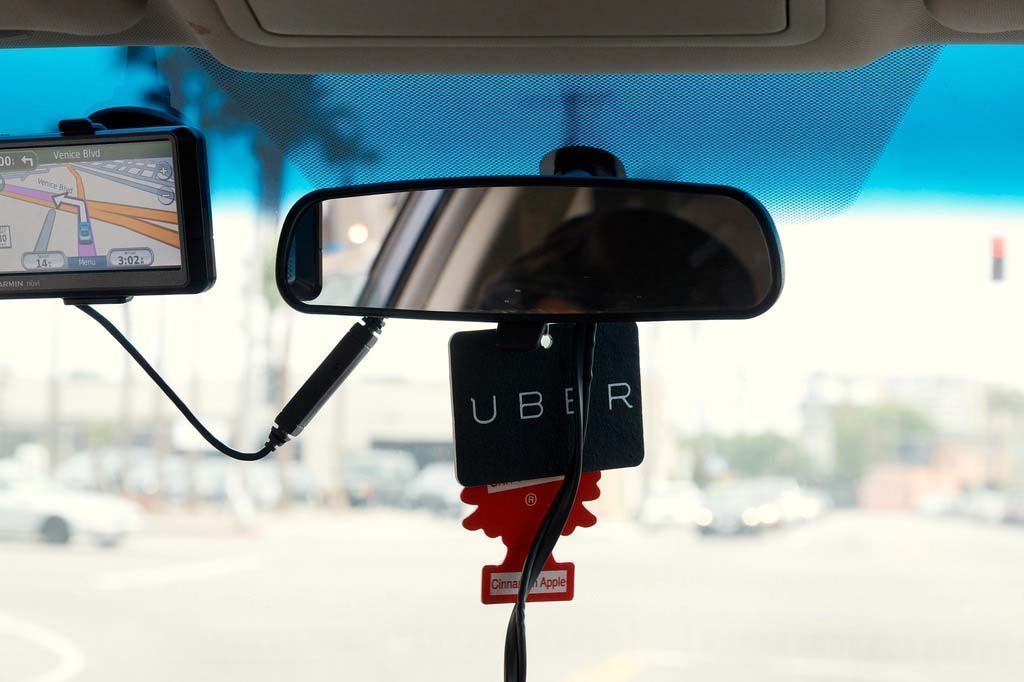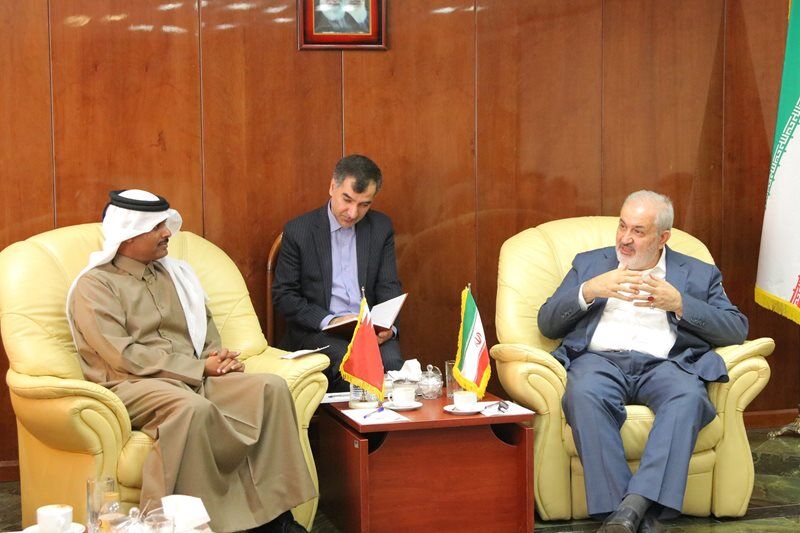
More competition is coming to Doha’s taxi and limousine industry as a US-based company, which lets customers book luxury vehicles via their smartphone, rolls out its operations in Qatar.
Uber, which quietly began operating here in mid-December, held an official launch for its Qatar service last night.
It joins UAE-based Careem, which started offering a similar service last summer, in offering an alternative to Doha’s established taxi and limousine firms.
Speaking to Doha News, Jambu Palaniappan, Uber’s head of EMEA expansion, said:
“This city is on a growth curve that is probably unmatched anywhere in the world. As that growth happens, we want to play a role in supporting it from a lifestyle and logistics perspective.”
Uber and Careem customers create online accounts by providing a credit card number and can either download a mobile app or visit the firm’s website using a smartphone. (Careem also allows clients to book using a computer.)
Using the GPS co-ordinates of the client’s phone – as well as those inside nearby vehicles – Uber dispatches drivers to the customer’s location and provides an estimate of how long it will take the car to arrive.
At the moment, Uber and Careem’s fares are comparable – although Uber officials said their fares, which include a base rate plus additional charges for each minute and kilometer – are likely to rise by roughly 20 percent once its promotional period passes. Uber’s fare calculator shows a ride from City Center Mall to the Souq Waqif would cost between QR25 and QR32. The same trip would cost QR30 using Careem, according to its website.
Careem currently serves four cities – Abu Dhabi, Doha, Dubai and Riyadh – while Uber is available in 65 cities around the world.
Business model
Neither business actually owns cars or directly employs drivers, and instead contracts with existing limousine service providers.
An Uber official said he considered his company to be a technology firm specializing in connecting drivers with passengers and processing payments.
Uber, which was founded in San Francisco in 2009 and is said to have received a US$250-million (QR910.4 million) investment from Google Ventures, has set up branches in several cities in the US and India, among other locales. It launched operations in Dubai last August and Abu Dhabi in November, before coming to Qatar.
Palaniappan declined to provide ridership or revenue projections, but did say that the company has at its disposal “several hundred” cars – Audi A6s, E- and S-class Mercedes as well as 500-series BMWs – and “thousands” of Qatar customers who have already registered.
“The response has been really strong. It is really clear that this product fits well with the needs of Doha.”
Indeed, residents have been tweeting positively about the service.
@Uber_Doha #Doha the ride was a #Mercedes :)) the drivier with nice and neat. he lost his way in #Bawa_City which is very Normal 2
— أبن علي بك الكبير (@Ahmed_Ali_Saad) January 27, 2014
Just had my first @Uber_Doha ride and the experience has been AMAZING! 🙂 #Uber #Doha #Qatar pic.twitter.com/p67wv7F1MM
— Manu Ajamil (@ManuAjamil) January 28, 2014
Competition
In the US, the rapidly growing company has gained a reputation for strong-armed sales strategies and was this month forced to apologize after its New York employees were caught reserving, and then canceling, more than a hundred cars at a rival service.
Palaniappan said the New York incident was an example of a regional team being “overzealous,” adding that here, the company plans to compete on the strength of its technology and service.
“We’re happy to put that up against anyone else who plays in the space.”
While some may see Uber as a threat to Careem as well as Qatar’s established taxi and limo companies, Palaniappan said he doesn’t foresee his firm stealing market share from other businesses. Qatar is simply growing too fast, adding more residents who need to get around, he said.
If anything, Palaniappan forecasts that some customers may start to use Uber’s services instead of their personal vehicles for certain trips.
For its part, Careem said the competition may actually boost its business. Company cofounder Mudassir Sheikha said that his bookings rose after Uber launched in Dubai and created more awareness of the service.
“We welcome the competition and think it will help make us stronger,” he told Doha News.
After starting its service with mid-level sedans such as Honda Accords, Toyota Camrys and Nissan Altimas, Careem has added a “business class fleet” that includes 500-series BMWs. Sheikha said business in Doha is “going along quite nicely,” supported primarily by corporate customers.
@CareemDOH @fahadq10 tried careem today and loved it! Came on time, clean car, will def use again. Great customer service also!
— Sherin Elissa (@elissa211) January 21, 2014
He added that the traditional difficulties in finding a taxi in Doha means that many residents who can afford Careem’s service already own a car or use a regular driver. Thus, many clients have been pre-scheduling pickups – something Uber currently doesn’t offer – for trips to the airport, restaurants and other destinations.
Drivers
Given that both Careem and Uber rely on other firms to supply vehicles and drivers, some industry observers have painted the competition as a “land grab,” as both companies race to sign agreements with existing limousine companies – something that may discourage more firms to enter the market.
However, Sheikha said he doesn’t require his partners to sign exclusivity clauses, which would be difficult to enforce anyways, he said. Instead, Careem aims to attract drivers by offering training as well as call center support for navigation or communication issues.
He said he didn’t have compensation figures for Doha immediately available, but that a Dubai driver could make AED4,000-17,000 (QR3,966-16,855) a month. Doha’s smaller size means a local driver may make 20 to 30 percent less than their Dubai counterparts, Sheikha said, adding that Careem customers only represent a portion of a driver’s daily fares.
Uber officials were unavailable to answer follow-up questions about compensation.
However, one driver told Doha News that his company – one of several that Uber engages – pays him QR3,000 a month and does not provide food or accommodation allowances. He said he works 12-hour shifts, six days a week, and does not receive overtime pay.
“In Qatar, they’re not thinking about the drivers,” he said, echoing concerns recently expressed by Al Million taxi drivers.
“Qatar does not think about the lower or middle class. Only the upper class.”
Have you tried Uber? Thoughts?







